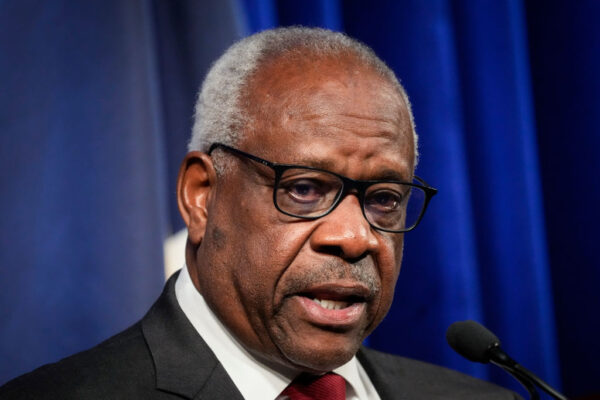The U.S. Supreme Court’s decision on Monday could make it harder for state prisoners to fight their cases after conviction.
Two Arizona death row inmates, David Ramirez and Barry Jones, brought the case before the Supreme Court to petition for a new trial. The men claim that their state trial and appellate lawyers did not represent them well in court.
In the 6-3 opinion penned by Justice Clarence Thomas, the nation’s highest court ruled that the inmates could not present new evidence in federal court that their lawyers did not consider every argument on their behalf in state courts.

The Sixth Amendment guarantees a criminal defendant’s right to effective counsel. The Supreme Court had previously allowed evidentiary hearings in a federal court in cases where lawyers failed to collect evidence to prove a defendant’s freedom.
Thomas said his understanding of federal law is that the inadequacy of a post-conviction lawyer in developing the state-court evidence “is attributed to the prisoner,” and prisoners cannot seek federal intervention when they’re at fault.
Thomas said the claims could “needlessly prolong” court proceedings, and the federal court “must afford unwavering respect to the centrality of the trial of a criminal case in state court.”
“Federal intervention imposes significant costs on the state criminal justice systems,” Thomas also wrote.
“Serial relitigation of final convictions undermines the finality that is essential to both the retributive and deterrent functions of criminal law,” he said.
The five other conservative justices agreed. The three liberal justices on the bench opposed the decision.
Justice Sonia Sotomayor said in her dissent that the decision was “perverse” and “illogical.” The inmates were not at fault for their attorneys’ failure to represent them properly.
Sotomayor said the decision strips inmates who end up in the predicament of any chance of relief, leaving them with an “empty” constitutional guarantee.
“The court’s decision reduces to rubble many habeas petitioners’ Sixth Amendment rights to effective assistance of counsel,” wrote Sotomayor.
According to the National Registry of Exonerations, more than 3,000 people have been wrongly convicted of crimes since 1989, accounting for 27,080 years of their lives.
The Innocence Project estimates that since 1973, 186 people on death row have been exonerated. While 13 percent of the U.S. population is Black, Black people account for 47 percent of wrongful convictions, the national registry shows.
The U.S. justice system offers poor or needy criminal defendants state-appointed public defenders to plead their cases before the court. However, public defender systems are often underfunded and understaffed, according Pew Charitable Trusts.
University of California Law student Rosa Greenbaum’s examination of 366 exonerations caused by inadequate legal defense found that investigative failure was the cause of 80 percent of the wrongful convictions.
Jones was convicted for the capital murder, sexual assault and abuse of his girlfriend’s 4-year-old daughter, Rachel Gray. Prosecutors said Rachel died from injuries she sustained while in Jones’ care, court documents show.
Jones’ trial lawyer missed “readily available” medical evidence that could have shown that the toddler’s injuries were sustained when she was not in his care, Sotomayor wrote.
Jones’ attorney in the Supreme case argued that Jones’ original post-conviction attorney failed to investigate the attorney trial’s negligence.
“Today is a sad day,” Robert Loeb, an attorney for both men, told CNBC in a statement. He called the decision “tragic” for Jones.
“The court’s decision effectively closes the federal courts to many prisoners with extremely serious constitutional ineffective trial counsel claims simply because they were unlucky enough to have incompetent lawyers at every stage of state court proceedings,” Loeb told CNN.
Ramirez was charged with the capital murders of his girlfriend and her daughter. His trial lawyer failed to present evidence of his intellectual disability to the court. Ramirez’s lawyer later admitted she was ill-prepared to represent someone so “mentally disturbed.”
Both men also had to prove that deadlines missed in state court should be excused because of the carelessness of their public defenders, according to reporters.
Arizona Attorney General Mark Brnovich lauded the court’s decision on Monday.
“I applaud this decision because it will help refocus society on achieving justice for victims, instead of endless delays that allow convicted killers to dodge accountability,” Brnovich wrote.


